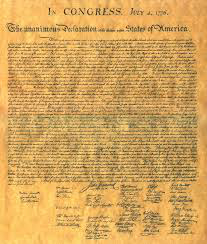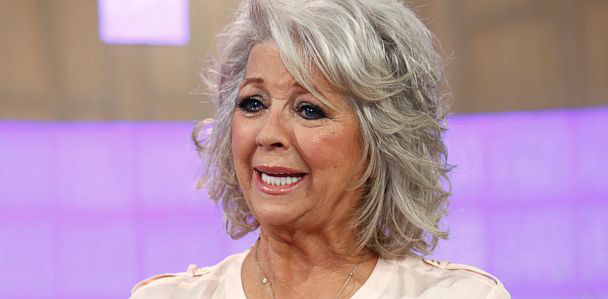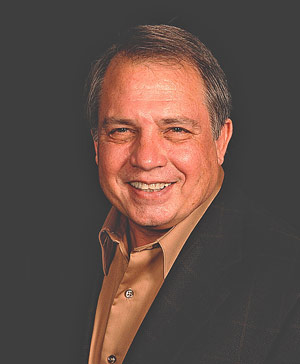“A Piece of My Mind”
July 2013 Newsletter from Donald Shoemaker
Advancing Christian Faith and Values, Defending Religious Liberty for All, Supporting Civility and the Common Good through Preaching, Teaching, Writing, Activism and Reasoned Conversations
With much thanksgiving to God…

Religious Liberty Vigilance
“Our Declaration of Dependence”
July 4, 1776
The Declaration of Independence can just as appropriately be titled the “Declaration of Dependence.” This majestic document, arguably the most masterful state paper of Western civilization, displays a dependence on God foundational to its claim for independence from England.
Even a casual reading of this document impresses us with the role God plays in the course of human events.
God is first acknowledged as lawgiver. The “laws of nature and of nature’s God” entitle the colonies to sever their tie with England and assume a separate and equal station among the powers of the earth.
Second, God is creator. As such, he endows humanity with “unalienable rights” including the rights of “life, liberty and the pursuit of happiness.” Governments cannot bestow these rights—they don’t belong to government in the first place. Government is instituted to protect these rights. If instead it becomes destructive to these principles, the people are free to abolish that government and institute a new one that will uphold the principles.
Thomas Jefferson was the principle author of the Declaration. His later metaphor on the “wall of separation” between church and state is often brandished about as an instrument to keep religious expression out of public life. But Jefferson thought both institutions were necessary.
Contemporary secularists who desire a constricted role for religion and an expansive role for government would do themselves a favor to see how he regarded the nature and role of both.
In his “First Inaugural Address” (1801) he said that religions teach “honesty, truth, temperance, gratitude and the love of man.” But one more blessing is needed to “make us a happy and prosperous people.” That blessing is a “wise and frugal government which shall restrain men from injuring one another, which shall leave them otherwise free to regulate their own pursuits of industry and improvement, and shall not take from the mouth of labor the bread it has earned.” For our values we turn to religion. For the protection of those values and for our own protection and freedom (and little else) we look to government.
A third reference to God acknowledges him as “supreme judge of the world.” The framers of the declaration appeal to God, that he might judge the “rectitude of our intentions” as these representatives of the colonies declared them to be “free and independent states.”
Finally, God is protector. The framers acknowledged and relied upon his divine providence as they bonded themselves together with a pledge of their lives, fortunes and sacred honor.
No one can claim that Jefferson’s concept of deity is completely congruent with the God confessed in the Christian faith. Jefferson was not hesitant to take his scissors to Holy Scripture. Enlightenment man that he was, he saw God and his values as accessible to all people through the avenue of reason, not just to a few people through an avenue of special revelation.
At the same time, not every concept of God could provide a proper foundation for the Declaration. Polytheism could not work, for the principles of human rights this document confesses have authority the world around and all humanity is answerable to the “supreme judge of the world” in how the principles are honored. Nor will modern non-theistic naturalism work, for no fundamental standards of human rights or of right and wrong can emerge from naturalism.
And the God of many of our founding documents is neither a deterministic God nor one who coerces human behavior. The freedom of conscience in matters of religion (so important to Jefferson) arises from the fact that an almighty God could have coerced our minds had he chosen to do so. But God chose to leave our minds free, and so man must not coerce the mind either. *
Seventeen centuries before Jefferson, a Christian thinker known to us as “the Apostle Paul” offered thoughts on God similar to those in the Declaration as he dialogued with philosophers in ancient Athens. There is a God who “made the world and everything in it” including “every nation.” We are “his offspring” and he gives to everyone “life and breath and everything else.” While he allows us to walk in the ways of our own choosing, he has “set a day when he will judge the world with justice.” (Acts 17:24-‐31)
As we celebrate our nation’s rich heritage we should be appreciative of the sacrifice and insight of those who framed our Declaration of Independence. We should also give thanks to the Creator and Judge of the earth whose moral principles provided our country with its foundation. And we should dedicate ourselves to the realization of our fundamental principles, which beckon each American generation to fulfill them afresh.
(“Our Declaration of Dependence” by Donald P. Shoemaker appeared as an op-‐ed on Sunday, July 2, 2000, in the Long Beach, CA Press-‐Telegram.)
* Jefferson made this theological determination a foundational principle for the Virginia Statute for Religious Freedom (adopted in 1786). While this document set a foundation for religious liberty, it was not without its own theological assumptions. The same is true of comparable documents and arguments today.
Jefferson’s authorship of this document is mentioned on his tombstone at Monticello along with Father of the University of Virginia and Author of the Declaration of American Independence. It is interesting and revealing that his presidency is not mentioned on the tombstone.
“Prophets are Good for Business” (Applying Biblical Principles to Work Situations)
Because of the long feature article befitting July 4, this section will resume in August.
“Upcoming Ministries” and “Good News from Grace” will also resume in August.
Bible Insight –
“Give us today our daily bread.” – The Lord’s Prayer (Matthew 6:11 NIV)



This petition in the prayer Jesus gave us to pray reminds us that God is the ultimate source of our necessary provisions (he didn’t say to pray for dessert but for “the staff of life”). “When you [God] open your hand, they are satisfied with good things” (Psalm 104:28).
It also reminds us to take life one day at a time. God’s provision for Israel during her wilderness experience was a daily one (Exodus 16:13-‐20). And Jesus teaches (in a lesson I have to learn over and over), “Do not worry about tomorrow, for tomorrow will worry about itself. Each day has enough trouble of its own” (Matthew 6:34).
This prayer also generates a large number of “sub-‐requests”—prayers for the factors and processes that bring food to our tables. We pray for:
- Good government, law enforcement and peace, without which there is want at the table. As we recently were reminded in a food contamination case, also ensuring the safety of what we eat.
- Immigrant and migrant workers, who do the difficult work in the fields and orchards from which much of our daily provisions come.
- Sound economic policies that encourage jobs and productivity.
- Good and safe transportation of the products we need.
- Thriving wholesale and retail markets that provide profits and income even as we buy for our daily needs at reasonable prices.
So you see, as with other petitions in The Lord’s Prayer, there is much to cover (explicitly or implicitly) when we speak those six words.
Message of the Month –
Paula Deen, Forgiveness, and The Unpardonable Sin


“If your brother sins, rebuke him, and if he repents, forgive him.” – Jesus (Luke 17:3).
“If any one of you is without sin, let him be the first to throw a stone at her.” – Jesus’ defense of the woman caught in adultery (John 8:7).
While I’m a fan of eating, I’m not particularly a fan of Paula Deen nor have I followed closely the accusation that she used a racial slur or her responses, seemingly awkward at times. So it would be improper for me to attempt a deep analysis.
But I can speak on repentance and forgiveness. This sad happening does give us pause to consider these vital subjects.
First, there is of course a difference between being forgiven and being able to resume life as if nothing happened. Some wrongs are of such a magnitude that they require life adjustments (even prison) and restoration over time. Some may mean the permanent loss of a position—just ask King Saul. We need to ponder: What was done? When (recent or long ago)? Where? To whom and how broadly? How intense (flippant or malicious)? How often? How long? How regretted?
Second, in the story of John’s Gospel, chapter 8 *, Jesus speaks the poignant challenge, “Let him who is without sin cast the first stone.” Frozen silence. What persons, even dedicated Christians, haven’t uttered an intemperate slur in the heat of the moment? Few, I’m sure.
[* I am well aware that including this account in John’s Gospel is doubtful based on manuscript evidence. The narrative and Jesus’ replies are thoroughly consistent with Jesus’ life experiences and teaching recorded elsewhere in the Gospels.]
Third, could there be a tinge of self-‐righteousness in those who would bring down wrath and fire over a spoken word from long ago?
I wouldn’t fault businesses for making decisions based on how a celebrity’s action affects the bottom line. But bringing such a “stance of righteousness” into a secular context seems selective and strange.
And if a single racial slur can doom a career, how many other celebrities should be doomed for demeaning those of another race or social standing or political viewpoint? How many have demeaned Catholics or Protestant fundamentalists. How many have demeaned God by taking his name in vain—the ultimate slur? Why aren’t these career-‐killers?
Perfectionism is an ugly attitude, be it religious or secular. In religion, it makes those who think themselves superior into very unforgiving judgmentalists. Apparently the same can be true in the secular realm.
Fourth, this happening should be a learning experience in the art of seeking forgiveness. Seems Paula Deen has apologized profusely— perhaps too profusely.
There are circles of offence, hence circles of seeking forgiveness. The most immediate circle includes the person or persons directly sinned against. The plea for forgiveness must be first and foremost directed toward them. (In the case of murder the people directly attacked are gone due to the perpetrator’s malicious act, making murder a sin for which forgiveness cannot completely be sought.) The circles enlarge to the families, friends and close associates of the victims. There may be other circles such as a societal circle, in the case of wrongs that tear the fabric of society.
Since all sin is an offense against God, he must be included in the immediate circle. This is especially true if the wrong demeaned the humanity of another. “With the tongue we praise our Lord and Father, and with it we curse men, who have been made in God’s likeness…this should not be” (James 3:9-‐10).
The problem I have with a general plea for forgiveness, a “To whom it may concern” plea, is that it is so broad that the circles of forgiveness are washed out. If addressed to everyone, has it been addressed to anyone?
Finally, we must not treat a racial slur, be it ever so repugnant, as “the unpardonable sin.” Jesus did speak of an unpardonable sin (blaspheming the Holy Spirit of God). But don’t forget his broad word of mercy: “Every sin and blasphemy will be forgiven”—even “a word against the Son of Man”—against Jesus himself (Matthew 12:31-‐32).
God is generous in forgiving and restoring. Let us be too.



